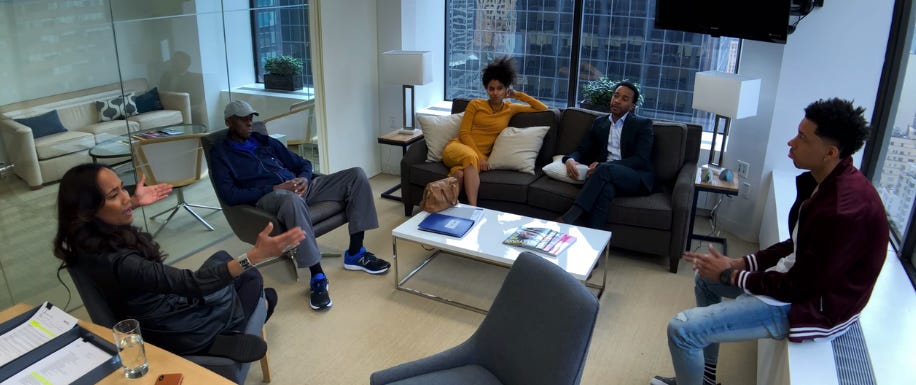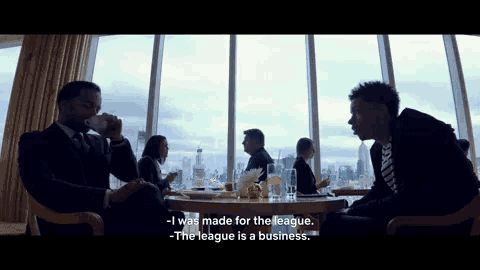Welcome to today’s plug, a quick recommendation of an oft-forgotten film, cult classic, or movie that is dying to be rewatched // We send plugs every Tuesday + Thursday //
Steven Soderbergh’s High Flying Bird, a film about Ray, a world-weary NBA agent navigating a contract lockout between the players and owners, is a disorienting watch. Partially because of its filming technique (shot entirely on an iPhone 8) and the behind-the-scenes negotiations and schemes only the absurdly wealthy understand, sure, but so do to how the film’s rhythms subtly shift and pivot within scenes.
At face value, High Flying Bird presents itself as a sports film that is about economics. Its opening scene involves Ray consoling his client, Erik Scott (playing by Melvin Gregg, who was pitch-perfect in the second season of American Vandal [RIP]), an NBA rookie with debtors on his back before he’s even cashed his first pro-Basketball check. As the lockout drags on for months, players begin to get antsy as the billionaire owners wait for the other side to break. On second thought, High Flying Bird is really a socioeconomic film that is about basketball (although, you don’t see much basketball played).
Written by Tarell Alvin McCraney, the co-writer of Moonlight, High Flying Bird is concerned with just how unstable the financial situations of professional basketball players are, even when they’re potentially making millions of dollars. Soderbergh gently pauses the story to bring in Karl Anthony Townes, Donovan Mitchell, and Reggie Jackson, IRL NBA players to talk about their experiences entering the league — the uncertainty, self-doubt, and pressure that comes with achieving the wealth and fame they’ve always dreamt of.
A fast-paced moodiness and anxiety propel the film forward as Ray schemes with his (former) assistant Sam (played by Zazie Beetz, who seems to be having a ton of fun) to figure out how to end the lockout, get players back on the court, and paychecks cashed. That, of course, requires making a deal with the devil, or, rather the NBA owners, who, throughout the film, are compared to slave owners more than once. Early in the film, an older Brooklyn basketball coach tells Ray:
Look, there’s a reason why the NBA started integrating as the Harlem Globetrotters exhibitions started going international: control. They wanted the control of a game that we play better. They invented a game … on top of the game. The question is: what gon’ do? You in or out?
And despite it all, High Flying Bird isn’t a gloomy, sad portrait. Soderbergh isn’t really interested in wallowing in sadness, but instead uses the characters’ cynicism to pull off a clever heist to reclaim the game back from the wealthy, unimaginative devils that are holding it hostage.





